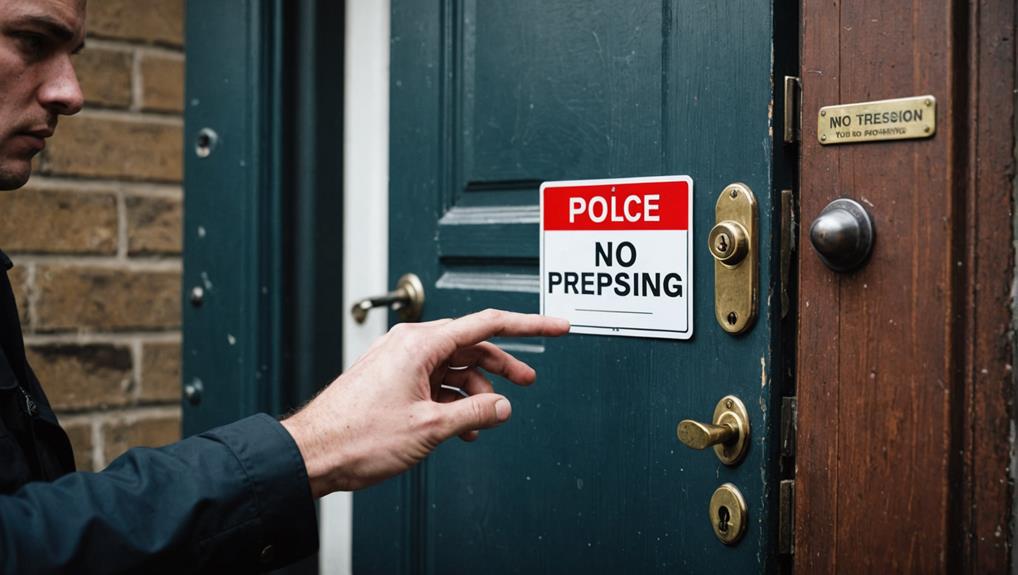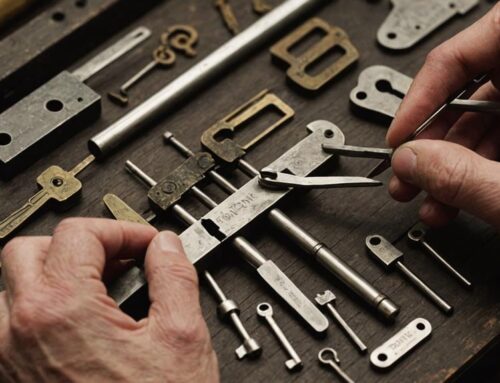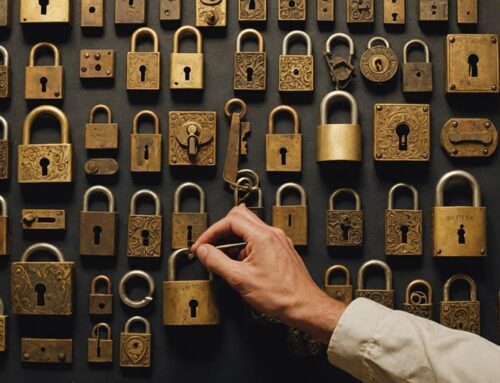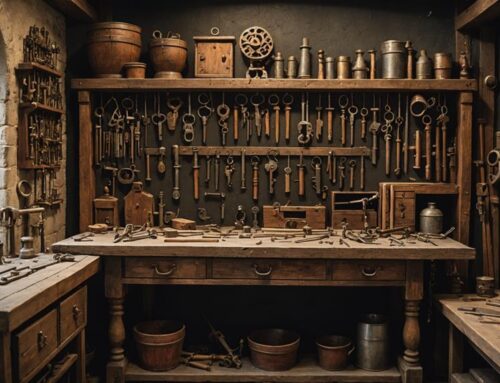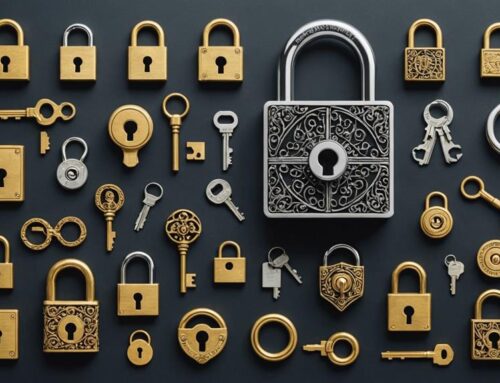Understanding the legal risks of lock picking is essential for you to avoid potential charges and repercussions in your area. Possessing lock picking tools for criminal purposes can lead to severe consequences, including charges for illegal entry or burglary. Laws differ between states, and unauthorized lock picking can result in serious legal trouble. Make sure to get explicit permission before attempting to pick a lock, and research local regulations to stay informed. If you want to learn more about legal boundaries, consequences, and tips for responsible lock picking practices, there is valuable information available to guide you further.
Key Takeaways
- Possession of lock picking tools for illegal activities is prohibited in many jurisdictions.
- Unauthorized lock picking can result in charges of burglary or trespassing.
- Different states have varying regulations; some permit possession for locksmiths.
- Legal consequences may include fines, civil lawsuits, and professional repercussions.
- Seek legal advice and understand local laws to practice lock picking responsibly.
Understanding Lock Picking Laws
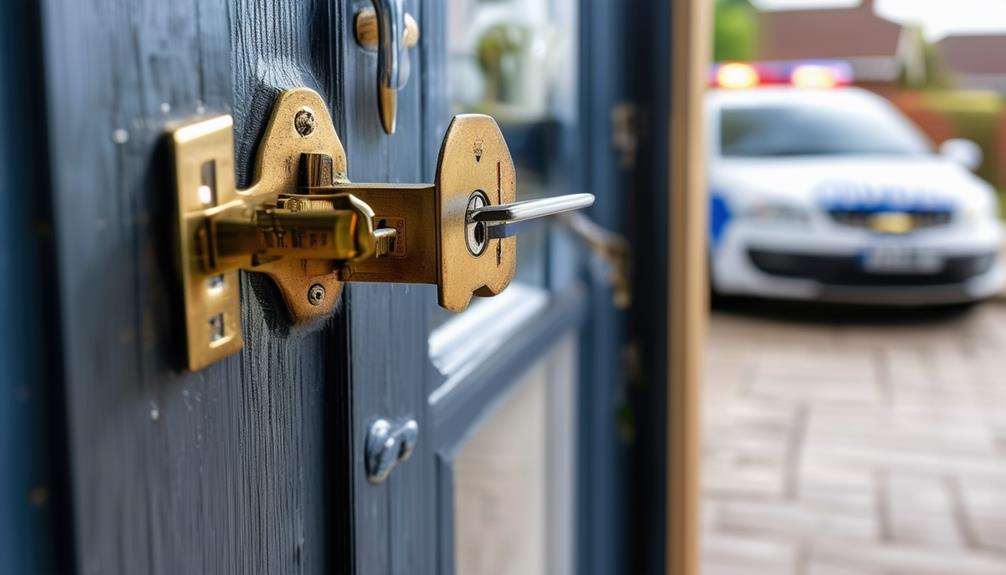
When it comes to lock picking, understanding the laws surrounding this practice is vital. Lock picking laws vary by jurisdiction, and it's important to be aware of the legal risks associated with engaging in this activity.
In many places, possessing lock picking tools with the intent to use them for unlawful purposes is illegal. Even if you don't have malicious intentions, simply having these tools in your possession can still lead to legal consequences.
It's also important to note that different states have varying regulations on the possession of lock picking tools; for example, some states allow possession for locksmiths while others impose stricter restrictions on individuals lock picking regulations by state.
It's important to know that while lock picking can be a valuable skill for locksmiths or security professionals, using it without proper authorization can result in serious penalties. Engaging in lock picking without the consent of the property owner is typically considered illegal entry or trespassing.
Additionally, attempting to bypass locks without permission can lead to charges of burglary or similar offenses.
Before you decide to practice lock picking, take the time to research and understand the specific lock picking laws in your area. Being informed about the legal risks involved can help you avoid potential trouble and guarantee that you stay on the right side of the law.
Legal Boundaries and Restrictions
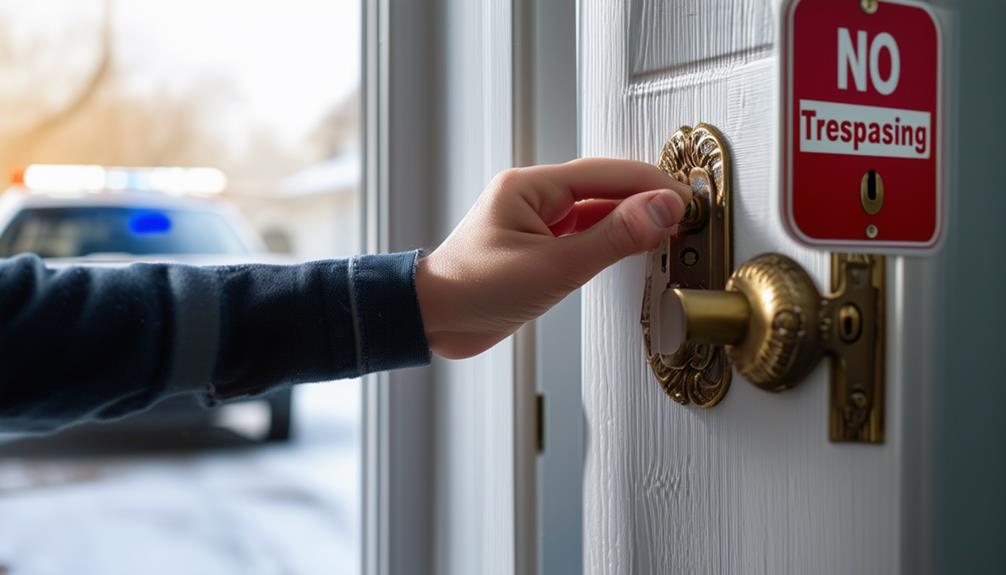
Understanding the legal boundaries and restrictions surrounding lock picking is vital to avoiding potential legal issues. Engaging in lock picking without proper authorization or in situations where it's prohibited can lead to severe consequences.
In many jurisdictions, possessing lock picking tools with the intent to use them unlawfully is illegal. This is because lock picking is often associated with criminal activities such as burglary and trespassing. It's important to recognize that laws surrounding lock picking vary greatly across the states, with some allowing possession for hobbyists while others impose strict regulations on lock picking laws.
It's important to be aware of the specific laws in your area regarding the possession and use of lock picking tools to prevent getting into legal trouble.
Moreover, even if you have the skills to pick locks, using them without permission can still result in legal issues. Breaking and entering, even if no damage is caused, is a serious offense.
As a result, it's vital to always have explicit consent before attempting to pick a lock, even if it's just for practice or educational purposes. Being mindful of the legal implications of lock picking can help you avoid unnecessary trouble and guarantee that you stay on the right side of the law.
Tips for Legal Lock Picking

To engage in lock picking legally, it's essential to acquire the necessary skills and tools while abiding by the laws in your jurisdiction.
Understanding the legal implications of your hobby is vital for responsible practice, so be sure to familiarize yourself with the legal aspects of lock picking.
Here are some tips to help you practice legal lock picking and avoid any potential legal risks.
First, always guarantee that you have explicit permission to pick a lock before attempting to do so. Lock picking should only be done on locks that you own or have been authorized to pick by the owner.
Next, make sure to research and understand the laws related to lock picking in your area. Familiarize yourself with any restrictions or regulations that may apply to your lock picking activities.
Additionally, consider joining a local locksmith association or community to gain insights and guidance on legal lock picking practices.
Consequences of Illegal Practices
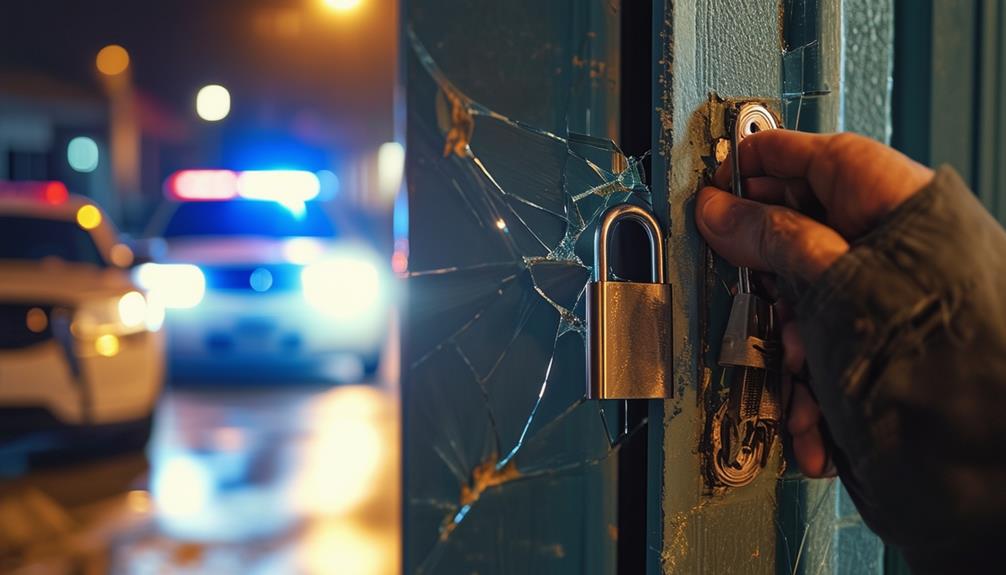
Engaging in lock picking without proper authorization or in violation of the law can lead to severe legal repercussions. The risks of lock picking extend beyond the act itself; it's vital to understand the potential consequences of illegal practices. Not only can it result in criminal charges, but it may also lead to civil liabilities and damage to your reputation. Below is a table summarizing some of the possible outcomes of engaging in unauthorized lock picking:
| Consequences | Description |
|---|---|
| Criminal Charges | Facing charges for trespassing, breaking and entering, or possession of burglary tools. |
| Civil Lawsuits | Being sued for property damage, invasion of privacy, or other related civil claims. |
| Professional Repercussions | Risking loss of professional licenses or job opportunities. |
| Financial Penalties | Fines, restitution payments, and legal fees can add up quickly. |
| Reputation Damage | Being known as a lock picker can harm your reputation in various circles. |
Understanding these potential outcomes is essential in making informed decisions regarding lock picking practices.
Seeking Legal Advice and Resources

When reflecting on the legal risks associated with lock picking, it's essential to seek guidance from legal professionals and access relevant resources. Understanding the legal aspects of lockpicking, including lock picking laws across different states, and the implications of engaging in such activities is vital to protect yourself from potential legal trouble.
Here are four key points to take into account:
- Consult with a Lawyer: Seek advice from a lawyer specializing in criminal law or property law to understand the specific regulations and consequences related to lockpicking in your jurisdiction.
- Research Local Laws: Familiarize yourself with the lockpicking legality in your area by researching relevant statutes and regulations that govern the practice.
- Join Legal Forums: Engage with online communities or forums dedicated to discussing the legal aspects of lockpicking to gain insights and advice from experienced individuals.
- Access Educational Materials: Utilize resources such as legal guides, articles, and books that provide information on the legal implications of lockpicking to stay informed and make informed decisions.
Frequently Asked Questions
Can Lock Picking Be Considered a Form of Self-Defense?
Yes, lock picking can potentially be viewed as a form of self-defense. It allows you to access a locked space in emergencies or protect yourself in dangerous situations.
However, the legality of lock picking for self-defense varies by jurisdiction. It's essential to understand the laws in your area to avoid any legal repercussions.
Always prioritize safety and legality when considering lock picking as a self-defense method.
Are There Specific Regulations for Owning Lock Picking Tools?
When it comes to owning lock picking tools, regulations vary by location.
Always check your local laws to stay compliant. Remember, what may be legal in one place could be prohibited in another.
Stay informed to avoid any potential legal issues. Being aware of the rules and regulations surrounding lock picking tools can help you navigate this hobby responsibly and safely.
How Can I Legally Practice Lock Picking on My Own Property?
To legally practice lock picking on your property, verify you own the locks or have permission to practice.
Familiarize yourself with local laws regarding lock picking activities. It's essential to avoid picking locks that don't belong to you without permission, as this could lead to legal consequences.
Always prioritize safety and legality when honing your lock picking skills at home.
Can Locksmiths Face Legal Consequences for Teaching Lock Picking?
Locksmiths can face legal consequences for teaching lock picking if it's illegal in your area.
Always check local laws before sharing this skill. Make sure you understand the regulations to avoid any trouble.
It's essential to stay informed and responsible when it comes to teaching lock picking.
Remember, knowledge comes with a duty to use it wisely and legally.
Stay safe and comply with the law to prevent any legal issues.
Are There Any Exceptions for Lock Picking in Emergency Situations?
In certain emergencies, like when a loved one is trapped inside, exceptions may exist for lock picking.
However, these cases are usually judged on a situational basis, and legality can vary.
Remember, always prioritize safety and follow proper procedures.
When faced with urgent situations, "necessity is the mother of invention" – just make sure you understand the potential consequences and act responsibly.
Conclusion
Now that you're aware of the legal risks of lock picking, remember to always stay informed and follow the laws in your area. It's essential to understand the boundaries and consequences to avoid getting into trouble. Keep in mind that seeking legal advice and resources can help you navigate any uncertainties. Stay tuned for more tips and information on how to safely and legally practice lock picking in the future.

